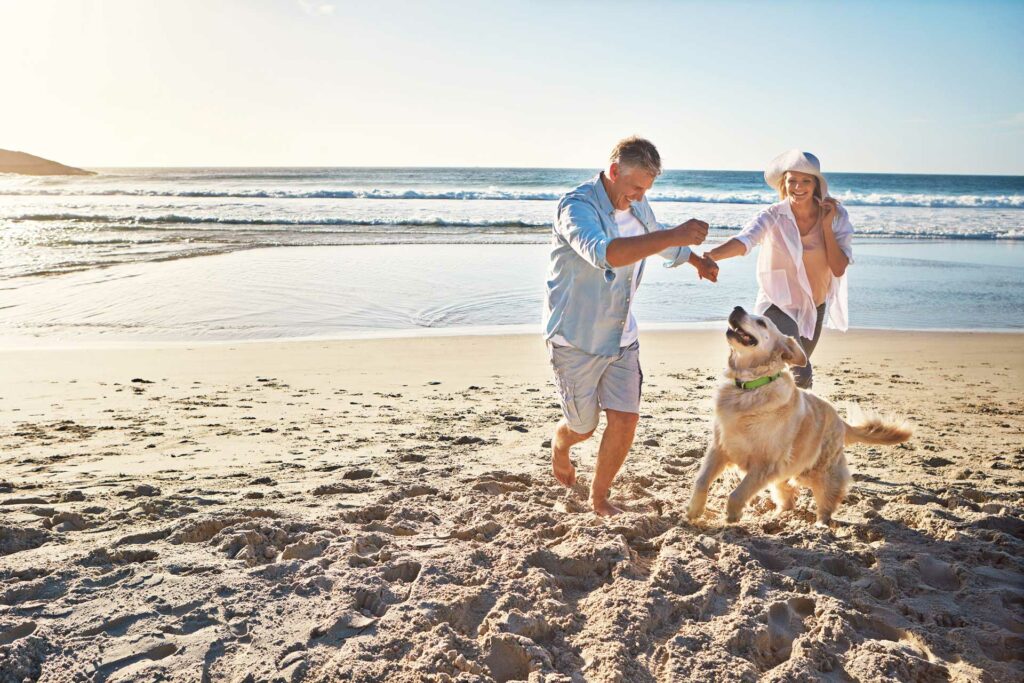1. What is the Non-Lucrative Visa (NLV)?
The Non-Lucrative Visa allows non-EU citizens to live in Spain without working locally. It’s ideal for retirees, remote professionals with passive income, or families taking a sabbatical. It grants one-year residence, renewable for two years at a time.
2. Who can apply for the Non-Lucrative Visa?
Anyone with sufficient financial means to live in Spain without working. Common applicants include retirees, freelancers with foreign income, investors, or families relocating for lifestyle or education reasons.
3. What are the financial requirements in 2025?
You must prove stable income or savings equal to:
- €2,400/month for the main applicant (400% of IPREM 2025).
- €600/month for each dependent (100% of IPREM).
Bank statements, pensions, investment income, or passive business profits qualify — as long as funds come from outside Spain.
4. Can I work remotely under the Non-Lucrative Visa?
Technically, no employment in Spain is allowed. However, passive or remote income from abroad is accepted if it doesn’t involve Spanish clients or companies. For full remote work rights, apply instead for the Digital Nomad Visa.
5. Do I need private health insurance for the NLV?
Yes. You must show Spanish private health insurance covering all risks, with no co-payments or waiting periods. We help applicants choose compliant insurers for consular and residency requirements.
6. How long does the application process take?
Average timelines:
- Document collection and legalization: 4–8 weeks.
- Consulate review: 4–6 weeks.
- Total: roughly 2–3 months from start to visa issuance.
We align this timeline with your housing search and planned arrival date.
7. Where do I apply for the Non-Lucrative Visa?
You must apply from your home country at the Spanish Consulate with jurisdiction over your residence. Applications cannot be filed from inside Spain. We help identify your consulate’s specific checklist — as requirements vary slightly.
8. What documents are required for the NLV?
Core documents include:
- Visa application form and fee
- Passport valid 1+ year
- Proof of income or savings
- Private health insurance
- Medical certificate
- Police background check (apostilled)
- Housing proof (12-month lease or property deed)
All foreign documents must be translated into Spanish and apostilled.
9. Is housing proof mandatory?
Yes. You must provide a 12-month rental contract or property deed in your name. Temporary bookings (hotel, Airbnb) are not accepted. We help secure compliant housing remotely, using digital signatures and Spanish legal checks.
10. Can I apply as a couple or family?
Yes. Each family member must submit a complete application, linked to the main applicant. Financial proof must cover all dependents. Lawyers and our relocation team coordinate joint filings and housing for families.
11. How long is the first residence valid?
The initial visa grants 1-year residence. The first renewal extends for 2 years, and the second renewal for another 2 years (total 5 years). After 5 years, you can apply for long-term residence.
12. What are the renewal requirements?
You must show:
- Continuous residence in Spain (max 6 months abroad per year).
- Updated financial proof (same income level).
- Valid health insurance.
- Continued lease or ownership.
We prepare renewals jointly with our legal partners to avoid lapses.
13. What is the difference between the Non-Lucrative Visa and the Digital Nomad Visa?
- Non-Lucrative Visa: for retirees and passive income earners; no remote work allowed.
- Digital Nomad Visa: for active remote workers with foreign employers or clients; allows legal remote work and tax incentives.
We help identify which fits your profile and visa goals.
14. Can I convert the NLV to a work permit later?
Yes, after one year in Spain under the NLV, you can apply for modification to a work visa if you receive a valid job offer. Your lawyer handles this conversion through the Spanish immigration office.
15. What is the minimum income proof format?
Consulates prefer bank statements for 6–12 months, pension letters, or investment reports clearly showing recurring income. Savings are accepted but income stability strengthens the application.
16. What happens after the visa is approved?
You’ll receive your visa sticker in your passport (valid for 90 days). Once you arrive in Spain, you must:
- Register your address (empadronamiento) within 30 days.
- Apply for your TIE (residence card) with your lawyer’s support.
We coordinate your appointments and local paperwork.
17. Do retirees pay taxes in Spain under this visa?
If you reside in Spain for more than 183 days per year, you become a tax resident and must declare global income. Spain has double taxation treaties with most countries to avoid paying twice. We connect clients with tax advisors for personalized planning.
18. How much does the Non-Lucrative Visa cost?
- Consular visa fee: €80–€150, depending on nationality.
- Document legalization, translations, and apostilles: €200–€500.
- Lawyer fees: €800–€1,200 on average.
- Health insurance: from €50–€120/month.
- Relocation and housing support as per service scope.
19. What if my visa is refused?
You can appeal within 30 days with your lawyer, correcting or reinforcing evidence. Common rejection causes are insufficient income proof, missing translations, or unclear housing documentation — all preventable with professional guidance.
20. How does Livin’España help with the Non-Lucrative Visa process?
We coordinate your immigration, housing, and relocation from day one:
- Partner law firms handle the legal visa process.
- We secure compliant housing and prepare required documentation.
- We guide you step-by-step through TIE, healthcare, and registration.
Everything moves together — legally, safely, and without overwhelm.

